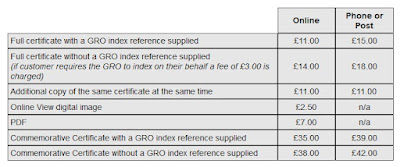I'm spending today revising for my Advanced Higher exam next week in Gaelic, and what should suddenly be announced but the 2022 census results on the language's state in Scotland, for which there is some mixed news on its fortunes.
The absolutely brilliant news is that overall in Scotland the number of people aged over 3 who can speak Gaelic has risen from 57,602 in 2011 to 69,701, with some 2.5% of the population having some knowledge of the language, up from 1.7% (an increase of 50%). This is thanks to a growing and successful Gaelic Medium Education programme, as well as an increase in interest further afield (thanks to SpeakGaelic, Duolingo, etc). That means 1 in every 40 people in the country now has some level of understanding of Gaelic. However, on the negative side, its use in the Western Isles, the language's remaining native heartland, has fallen from 52% to 45% since 2011, although in Na h-Eileanan Siar the number of folk with skills in Gaelic stands at 57.2%.
More work needs to be done to bolster the language's continued use in its remaining native heartland, at the same time recognising that a new form of language community is beginning to emerge beyond the Western Isles. Duolingo won't be around forever, so more sustainable policies need to be put in place, something it is hoped that the new languages bill before the Scottish Parliament will urgently address (as well as measures for the Scots language). Maybe it's also time to bring back Comunn an Luchd-Ionnsachaidh?
On the Scots language, the numbers claiming some knowledge of the language has risen to 46.2% in 2022 from 37.7% in 2011.
Incidentally, also released are figures on those who claim to be religious in Scotland - 51.1% have no religion in the country at all, the highest figure in the UK, up from 36.7% in 2011.
The census data is available at www.scotlandscensus.gov.uk.
Comment: Over the last 5 years I have been putting in a shift to learn the language of my Highland ancestors (Perthshire, Invernessshire and Rossshire), and so am delighted to see that the number of Gaelic speakers is finally growing again in the country, even if it is still struggling to find a steady baseline in the Western Isles. There are new Gaelic centre initiatives on the mainland at places such as the new Culturlann in Inverness, and continued enterprises such as An Lòchran in Glasgow, which I recently raised £2225 for by doing the Glasgow Kiltwalk. Next week I will be sitting my Advanced Higher exam, in the summer I am looking forward to a week's course at Sabhal Mòr Ostaig on the Isle of Skye, and then from September I will be returning to full-time education for eight months, doing a Cert HE course in Gaelic with Immersion at Glasgow University. I am still not sure where all this is taking me - I will certainly be applying it more to my genealogical work, but may well seek to take on new areas of interest after I finish the course. It's an exciting journey, and one that is certainly reshaping and rebalancing my connections to Scotland, but the key thing I want to point out is that if you are interested in Gaelic, it can be learned!
If you have an interest in the language, try the Duolingo Scottish Gaelic course to get underway (www.duolingo.com), as well as the BBC's Speak Gaelic series (www.speakgaelic.scot) and the Learn Gaelic platform (www.learngaelic.scot). If you are making progress with then language, and are resident in Scotland, I would also strongly recommend the National 5, Higher, and Advanced Higher courses in Gaelic for Learners available via e-Sgoil (https://www.e-sgoil.com). If you're in the Glasgow area, do visit An Lòchran (www.anlochran.com) for its opportunities for learners to get comfortable using the language.
And don't forget this site's Genealogy Terms for Gaelic Learners page at http://scottishgenes.blogspot.com/p/gaelic-genealogy.html...!
Deagh fòrtan dhuibh uile - agus suas leis a' Ghàidhlig!
For BBC Alba's coverage of the census results, visit https://www.bbc.co.uk/naidheachdan/sgeulachdan/c0kk8xrl8k2o.
Chris
Order Tracing Your Belfast Ancestors in the UK at https://bit.ly/BelfastAncestors. Also available - Tracing Your Irish Ancestors Through Land Records, Sharing Your Family History Online, Tracing Your Scottish Family History on the Internet, Tracing Your Irish Family History on the Internet (2nd ed), and Tracing Your Scottish Ancestry Through Church and State Records - to purchase, please visit https://bit.ly/ChrisPatonPSbooks. For purchase in tthe USA visit https://www.penandswordbooks.com. Further news published daily on The Scottish GENES Facebook page, on Threads at @scottishgenesblog and via Mastodon at https://mastodon.scot/@ScottishGENES











.JPG)










